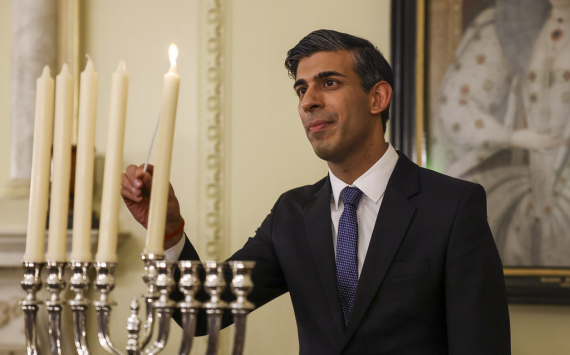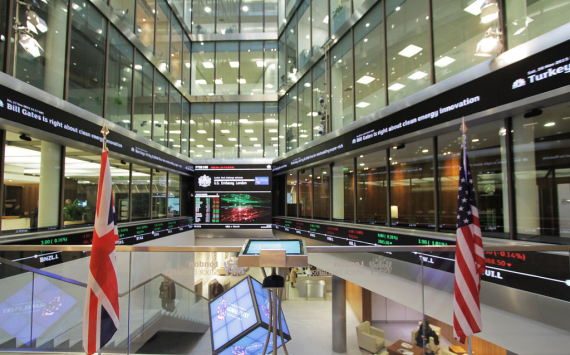Description
Meta Platforms (Facebook) is an American multinational technology conglomerate based in Menlo Park, California. The company owns Facebook, Instagram, and WhatsApp, among other products and services. Meta was once one of the world's most valuable companies, but as of 2022 is not one of the top twenty biggest companies in the United States. It is considered one of the Big Five American information technology companies, alongside Alphabet, Amazon, Apple, and Microsoft. As of 2022, it is the least profitable of the five.
Meta's products and services include Facebook, Messenger, Facebook Watch, and Meta Portal. It has also acquired Oculus, Giphy, Mapillary, Kustomer, Presize and has a 9.99% stake in Jio Platforms. In 2021, the company generated 97.5% of its revenue from the sale of advertising.
In October 2021, the parent company of Facebook changed its name from Facebook, Inc., to Meta Platforms, Inc., to "reflect its focus on building the metaverse". According to Meta, the "metaverse" refers to the integrated environment that links all of the company's products and services.
History
Facebook filed for an initial public offering (IPO) on January 1, 2012. The preliminary prospectus stated that the company sought to raise $5 billion, had 845 million monthly active users, and a website accruing 2.7 billion likes and comments daily. After the IPO, Zuckerberg would retain a 22% ownership share in Facebook and would own 57% of the voting shares.
Underwriters valued the shares at $38 each, valuing the company at $104 billion, the largest valuation to date for a newly public company. On May 16, one day before the IPO, Facebook announced it would sell 25% more shares than originally planned due to high demand. The IPO raised $16 billion, making it the third-largest in US history (slightly ahead of AT&T Wireless and behind only General Motors and Visa). The stock price left the company with a higher market capitalization than all but a few U.S. corporations—surpassing heavyweights such as Amazon, McDonald's, Disney, and Kraft Foods—and made Zuckerberg's stock worth $19 billion. The New York Times stated that the offering overcame questions about Facebook's difficulties in attracting advertisers to transform the company into a "must-own stock". Jimmy Lee of JPMorgan Chase described it as "the next great blue-chip". Writers at TechCrunch, on the other hand, expressed skepticism, stating, "That's a big multiple to live up to, and Facebook will likely need to add bold new revenue streams to justify the mammoth valuation."
Trading in the stock, which began on May 18, was delayed that day due to technical problems with the Nasdaq exchange. The stock struggled to stay above the IPO price for most of the day, forcing underwriters to buy back shares to support the price. At closing bell, shares were valued at $38.23, only $0.23 above the IPO price and down $3.82 from the opening bell value. The opening was widely described by the financial press as a disappointment. The stock nonetheless set a new record for trading volume of an IPO. On May 25, 2012, the stock ended its first full week of trading at $31.91, a 16.5% decline.
On May 22, 2012, regulators from Wall Street's Financial Industry Regulatory Authority announced that they had begun to investigate whether banks underwriting Facebook had improperly shared information only with select clients rather than the general public. Massachusetts Secretary of State William Galvin subpoenaed Morgan Stanley over the same issue. The allegations sparked "fury" among some investors and led to the immediate filing of several lawsuits, one of them a class action suit claiming more than $2.5 billion in losses due to the IPO. Bloomberg estimated that retail investors may have lost approximately $630 million on Facebook stock since its debut. Standard & Poor's added Facebook to its S&P 500 index on December 21, 2013.
On May 2, 2014, Zuckerberg announced that the company would be changing its internal motto from "Move fast and break things" to "Move fast with stable infrastructure". The earlier motto had been described as Zuckerberg's "prime directive to his developers and team" in a 2009 interview in Business Insider, in which he also said, "Unless you are breaking stuff, you are not moving fast enough."
2018—2020: Focus on the metaverse
In 2018, the Oculus lead, Jason Rubin, sent his 50-page vision document titled "The Metaverse" to Facebook's leadership. In the document, Rubin acknowledged that Facebook's virtual reality business had not caught on as expected, despite the hundreds of millions of dollars spent on content for early adopters. He also urged the company to execute fast and invest heavily on the vision, to shut out HTC, Apple, Google and other competitors in the VR space. Regarding other players' participation in the metaverse vision, he called for the company to build the "metaverse" to prevent their competitors from "being in the VR business in a meaningful way at all".
In May 2019, Facebook founded Libra Networks, reportedly to develop their own stablecoin cryptocurrency. Later, it had been reported that Libra was being supported by financial companies such as Visa, Mastercard, PayPal and Uber. The consortium of companies were expected to pool in $10 million each to fund the launch of the cryptocurrency coin named Libra. Depending on when it would receive approval from the Swiss Financial Market Supervisory authority to operate as a payments service, the Libra Association had planned to launch a limited format cryptocurrency in 2021. Libra was renamed Diem, before being shut down and sold in January 2022 after backlash from government regulators and the public.
During the COVID-19 pandemic, the use of online services including Facebook grew globally. Zuckerberg predicted this would be a "permanent acceleration" that would continue after the pandemic. Facebook hired aggressively, growing from 48,268 employees in March 2020 to more than 87,000 by September 2022.
2021: Rebrand as Meta
Following a period of intense scrutiny and damaging whistleblower leaks, news started to emerge on October 21, 2021, about Facebook's plan to rebrand the company and to change its name. In the Q3 2021 Earnings Call, on October 25, Mark Zuckerberg discussed the ongoing criticism of the company's social services and the way it operates, and pointed to the pivoting efforts to building the metaverse – without mentioning the rebranding and the name change. The metaverse vision and the name change from Facebook, Inc. to Meta Platforms was introduced at Facebook Connect on October 28, 2021. Based on Facebook's PR campaign, the name change reflects the company's shifting long term focus of building the metaverse, a digital extension of the physical world by social media, virtual reality and augmented reality features.
"Meta" had been registered as a trademark in the United States in 2018 (after an initial filing in 2015) for marketing, advertising, and computer services, by a Canadian company that provided big data analysis of scientific literature. This company was acquired in 2017 by the Chan Zuckerberg Initiative (CZI), a foundation established by Zuckerberg and his wife Priscilla Chan, and became one of their projects. Following the rebranding announcement, CZI announced that it had already decided to deprioritize the earlier Meta project, that it would be transferring its rights to the name to Meta Platforms, and that the project would end in 2022.
2022–present: Declining profits and mass layoffs
Soon after the rebranding, in early February 2022, Meta reported a greater-than-expected decline in profits in the fourth quarter of 2021.[63] It reported no growth in monthly users, and indicated it expected revenue growth to stall. The company also expected measures taken by Apple, Inc. to protect user privacy to cost it some $10 billion in advertisement revenue, an amount equal to roughly 8% of its revenue for 2021. In meeting with Meta staff the day after earnings were reported, Zuckerberg blamed competition for user attention, particularly from video-based apps such as TikTok.
The 27% reduction in the company's share price which occurred in reaction to the news eliminated some $230 billion of value from Meta's market capitalization. Bloomberg referred to the decline as "[...] an epic rout that, in its sheer scale, is unlike anything Wall Street or Silicon Valley has ever seen". Zuckerberg's net worth fell by as much as $31 billion. Zuckerberg controls 13% of Meta, and the holding makes up the bulk of his wealth.
According to published reports by Bloomberg News on March 30, 2022, Meta turned over data such as phone numbers, physical addresses, and IP addresses to hackers posing as law enforcement officials using forged documents. The law enforcement requests sometimes included forged signatures of real or fictional officials. When asked about the allegations, a Meta representative said, "We review every data request for legal sufficiency and use advanced systems and processes to validate law enforcement requests and detect abuse."
In June 2022, Sheryl Sandberg, the COO of 14 years, announced she would step down from the role in the fall of the same year. Zuckerberg stated that Javier Olivan would replace Sandberg, though in a "more traditional" role.
In July 2022, Meta saw its first year-on-year revenue decline when its total revenue slipped by 1% to $28.8bn. Many analysts and journalists accredited the loss to its advertising business, which has been limited by Apple's app tracking transparency feature and the number of people who have opted not to be tracked by Meta apps. Zuckerberg also accredited the decline to increasing competition from TikTok. On October 27, 2022, Meta's market value dropped to $268 billion, a loss of around $700 billion compared to last year, and its shares fell by 24%. It lost its spot among the top 20 US companies by market cap, despite reaching the top 5 in the previous year.
In November 2022, Meta laid off 11,000 employees, 13% of its workforce. Zuckerberg said the decision to aggressively increase Meta's investments was a mistake, as he had wrongly predicted that the surge in e-commerce would last beyond the COVID-19 pandemic. He also attributed the decline to increased competition, a global economic downturn and "ads signal loss". The Wall Street Journal characterized the layoffs as part of a general downturn in the tech industry, alongside layoffs by companies including Snap, Twitter and Lyft.























